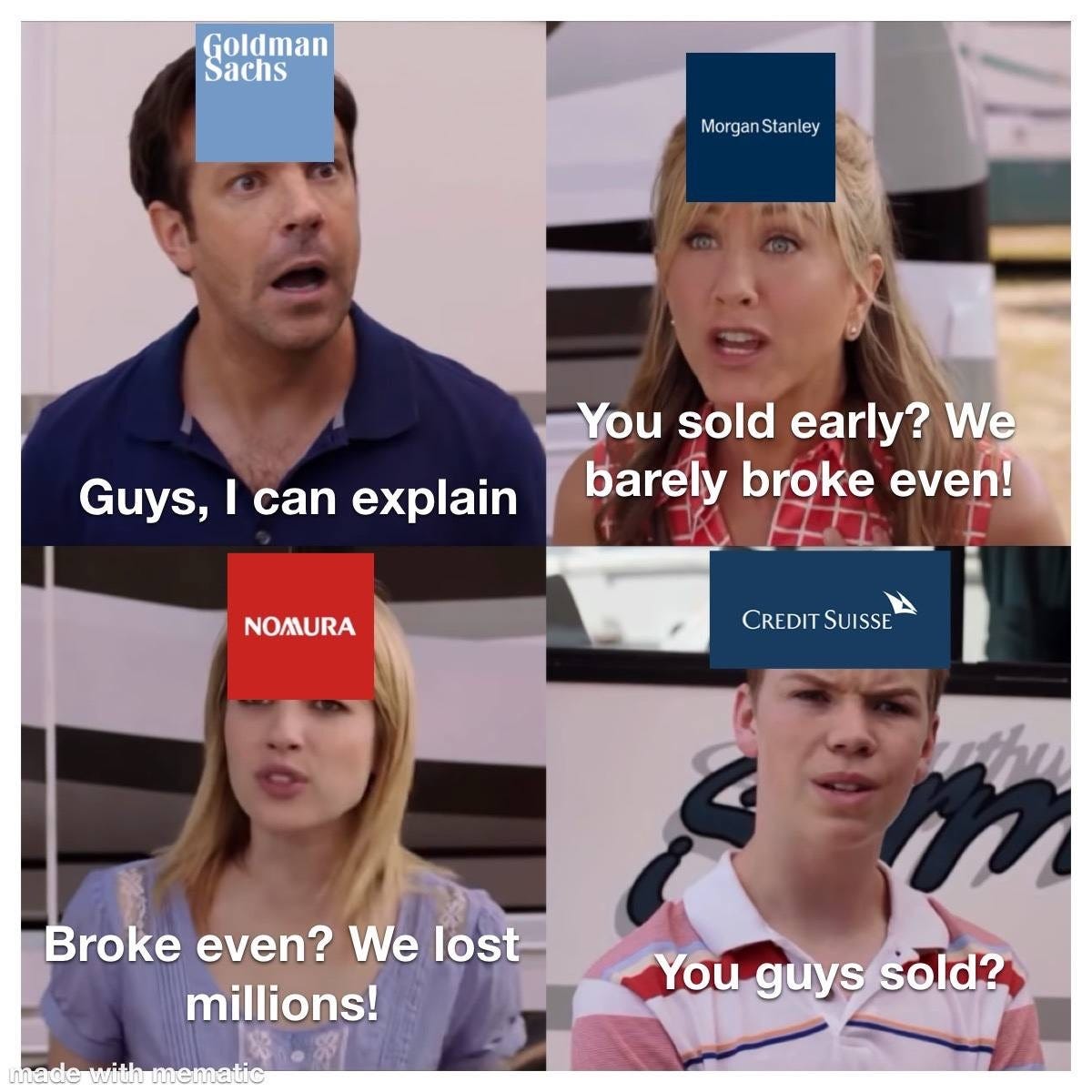Morning!
From online classes on Masterclass to… um… subscription- and tip-based “creator content” on OnlyFans (don’t visit it at work, we’ll leave it at that), demand for platforms that connect talent directly to companies and consumers has never been higher.
Last week, that industry had it’s biggest win to date, when the leading celebrity/creator-to-consumer platform Cameo raised $100M at a $1B valuation.
Cameo allows individuals to hire athletes, musicians, celebrities, etc., to give special shout outs to their friends, families, and coworkers.
Do you want Tiger King’s Carole Baskin to wish your husband a good night? Or how about have UFC announcer Bruce Buffer welcome your newborn into life’s octagon? Easy as pie.
It’s a great platform - as evidenced by the backing of VC powerhouses such as Kleiner Perkins, Lightspeed, and The Saturday-regular SoftBank - that benefits not only consumers, but also the talent.
Remember Kevin from The Office?
He made more than $1M on Cameo last year and, with the platform now allowing companies to book celebrities for ad campaigns, who knows how much he’ll make this year?
We’d be smiling too!
Someday, The Saturday might even have a guest drop-in to wish readers a good morning… who knows? There’s only one way to find out…
It’s Saturday April 10, 2021.
Fair Use
For over a decade, Oracle and Google have been waging a legal war over the latter’s use of the former’s code to develop the Android operating system. On Monday, the US Supreme Court sided 6-2 with Google, ending a costly battle in which Oracle sought $9B in damages.
At the heart of the suit was 11,000 lines of Java API code that Google copied to create Android, which now powers over 2.5 billion devices worldwide.
An API - application programming interface - is code that can be thought of as an intermediary between two sets of code or, more plainly, as a contract between two separate parties, governing how one party can request information or data from the other and how that request will be handled and processed.
A contemporary example is Plaid, the popular banking API.
When individuals want to use Venmo (PayPal’s peer-to-peer money transfer application), they must first tell the app which bank they use and provide their login credentials, so that Venmo can verify balances and process payments. The in-app interface where users input their bank credentials is actually powered by Plaid’s API, who takes that information, connects directly with the bank, and returns information about the account balance, etc.
Elsewhere, APIs are also what allows readers of The Saturday to seamlessly share this post on their Facebook or LinkedIn pages. Pretty cool tech… check it out!
Back to the story, in 2010, Oracle acquired Sun Microsystems and, with that, copyrights on the Java software platform. The 11,000 lines of code lifted by Google spanned 37 different Java APIs, but only accounted for 0.4% of Java’s 2,860,000 lines of code.
Despite the clear evidence of copying, on Monday, the Court found that Google’s use of Java code was “fair use” and granted the company its long desired victory.
For those very much into intellectual property law, here’s a primer on fair use and a deeper diver on the ruling.
For the rest of us, the Fair Use Doctrine can be summed up as follows: prior to Google using the code to build Android-based (i.e. mobile) apps, Java had almost exclusively been used in laptop and desktop apps. This distinction, according to SCOTUS, made Google’s use “transformative” instead of a mere ripoff.
Because Google only used a small portion of the total Java code (0.4%), it also got credit for limiting its copycat activities to the minimum needed to achieve that transformative use.
Finally, and more controversially, the Court also found that Google’s copying of the code didn’t interfere with Oracle’s desktop and laptop applications, which further bolstered the fair use argument.
This last point was a bit contentious; the dissent, led by Justice Thomas, pushed back strongly on this claim, arguing that Oracle’s ability to enter the mobile market was severely damaged by the competitor’s use of its code. That’s not a bad argument, but a majority of Justices found that Oracle’s efforts to penetrate mobile failed for other reasons, so that was that.
Pretty technical stuff for a Saturday morning.
Big picture, proponents of free and open-source software (i.e. developers) viewed the ruling as a major victory. Their basic opinion, echoed by Google’s Chief Legal Officer, is that this will allow developers to stand on each other’s shoulders to reach new innovative heights. instead of having to build new products from scratch and in silos.
On the other side, Oracle obviously disagreed and accused Google of being a monopolist. Interestingly, however, Java’s founder sided with Google:


As for the market… it didn’t care. Both Google and Oracle finished Monday up 3%.
Makes you wonder why we just wasted your time…
Sorry!
Plaid
Speaking of Plaid…
We first covered the company last November, when the DOJ filed an anti-trust suit to prevent Visa from acquiring the fintech upstart for $5B. This is what we said then:
Monopolies are bad and government-mandated obsolescence is also bad, but I’m an optimist. I think this ends well. I just don’t know how yet.
We checked-in on this story again in January, when the two companies opted to walk away instead of fighting the DOJ. This was our take:
My guess - and to the extent it could somehow be construed as investment advice, it’s not - is that Plaid ends up going public at some point in 2021 and may fetch a loftier valuation.
Close enough.
While it isn’t going public (yet), on Wednesday, Plaid announced a $425 million Series D funding round, valuing the company at $13.5B.
Visa’s done alright since the deal fell through - its stock is up about 10% - but Plaid clearly walks away the winner here, with its valuation up 2.5x from the acquisition price.
State of No Union
On Friday, Amazon workers in Alabama strongly rejected efforts to unionize, in a 71% to 29% vote.
In a vacuum, this wouldn’t look like a massively consequential vote: the 9,000 workers at Amazon’s Bessemer, AL warehouse make up less than 1% of the company’s 950,000 US-based employees.
Still, the vote attracted much media attention due to its broader implications.
Since the 1970s, private sector union membership in the United States has been on a steady decline - from 24.2% of workers in 1973, down to 10.8% in 2020. In contrast, unions currently represent 34.8% of public sector employees.
Labor organizations and pro-union activists were hoping that a victory against the country’s second largest employer, and in a state that disfavors unions, would help energize national unionization efforts. The Biden Administration itself indicated its support for the Bessemer pro-union movement and pledged to create more union jobs.
On the other side of the equation, employees who voted “No” mainly focused their feedback on the fact that Amazon already paid them double the state’s minimum wage and that whatever grievances they had with the company could be handled internally.
Predictable narratives from both sides, really…
In the end, fewer than 16% of employees voted to join the union. While this may seem like a pretty convincing result, the year is 2021, so…
The losing side already announced that it would appeal the vote and pledged to overturn the election.
Stop the steal!
Zurich, We Have A Problem
Somewhere in the world, Michael Lewis is (presumably) putting the final touches on a GameStop book and is just itching to get started on an Archegos follow-up. Forget The Big Short; Lewis’ tales about Roaring Kitty and Bill Hwang will be his Iliad and Odyssey.
Despite being the leading man in this epic, however, Bill Hwang will not feature in the best scene of the inevitable Archegos film adaption: the one where the fund’s bankers all hop a conference call in a desperate attempt to arrange an orderly liquidation, only to see Goldman Sachs pull a Ricky Bobby and, well…
This:
For Credit Suisse - the last ones to sell off their Archegos exposure - this debacle has officially resulted in a $4.7B write-down. This loss is in addition to the other multi-billion hit that the Swiss bank took last month in the Greensill fraud, which we also covered.
The consecutive missteps have sent CS’ stock tumbling 27% since March 1st, so on Tuesday, Bloomberg reported that the bank had “replaced its investment bank head and chief risk officer, along with a handful of other executives.” Its outgoing chairman also renounced his 2020 compensation.
Losing that much money in a short-time frame is never a good look, but doing so when other investment banks are posting near-record profits makes it even more difficult of a pill to swallow.
On the upside, at least these new issues are taking attention away from the bank’s 2019 spying scandal that cost its former CEO his job?
Maybe? The Saturday is big on silver linings, but we’re not sure about this one.
Have a great weekend!





